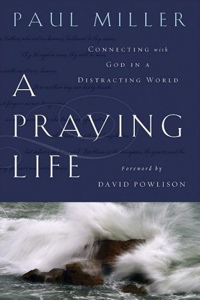I was recently asked, by the “Southern Ohio Pastors Coalition”, to write a blog on the use of the law in evangelism. I wanted to share my thoughts with you as well. Click here to read.
In addition to my post I would like to add a few other thoughts from others for your consideration:
“The law of the Ten Commandments …….This law God had given to man before (it was written on his heart by nature); but sin had so defaced that writing that it was necessary, in this manner, to revive the knowledge of it.”
-Matthew Henry (commentary on Exodus 20)
The following is an excerpt from Martin Luther’s “Smaller Catechism”:
(Section 4 – Christian Questions with Their Answers)
“1. Do you believe that you are a sinner?
Yes, I believe it. I am a sinner
2. How do you know this?
From the Ten Commandments, which I have not kept.”
Walter Chantry, in his book, “Today’s Gospel: Authentic or Synthetic”, wrote the following:
“If sinners are unaware of the Decalogue’s requirements for themselves, they will see no personal significance in Christ’s broken body and shed blood. Without knowledge of the condemnation of God’s holy law, the cross will draw sympathy but not saving faith from sinners….Hosts of Christians have a dreadful fear of God’s law, as if it were the useless relic of a past age, the use of which in our day would keep sinners from the grace of God. Our Saviour used the law as a primary tool in evangelism. He knew that preaching the Ten Commandments was the only way to teach a sinner his guilt and thereby stir within him a desire for God’s grace…The present moment of history finds more ignorance of God’s law than in many previous generations. The pulpit ignores Exodus 20…To the natural man, God’s laws are as chains, the harsh imposition of a ruler’s will. Thus the law reveals in him an absence of love for God and men…It is essential to declare the commandments in order to show the sinner his heart of hatred toward God and enmity toward men. Only then will he flee to the grace of God in Jesus Christ to provide him with righteousness and love. Men are not turning to Christ because they have no sense of sinning against the Lord. They are not convicted of sin because they don’t know what sin is. They have no concept of sin because the law of God is not being preached. You cannot improvise a hasty sop, “All men have sinned.” You must dwell on the subject at length. Exposit the Ten Commandments until men are slain thereby (Romans 7:11). When you see that men have been wounded by the law, then it is time to pour in the balm of Gospel oil. It is the sharp needle of the law that makes way for the scarlet thread of the Gospel…Do you see that Jesus was not looking for intellectual assent to the fact that the young man (Rich Young Ruler) was less holy than God? Christ wielded the sword of God’s law until it made deep and painful gashes on the ruler’s conscience…”
And last but certainly not least, Charles Spurgeon, the “Prince of Preachers” had this to say:
“…there is war between you and God’s Law. The Ten Commandments are against you…The First one comes forward and says, “Let him be cursed, for he denies me. He has another god besides me; his god is his belly, he yields homage to his lust.” All the Ten Commandments, like ten great pieces of cannon, are pointed at you today, for you have broken all God’s statutes, and lived in the daily neglect of all His commands. Soul! You will find it a hard thing to go to war with the Law. When the Law came in peace, Sinai was altogether on a smoke, and even Moses said, “I do exceedingly fear and quake.” What will you do when the Law comes in terror, when the trumpet of the archangel shall tear you from your grave, when the eyes of God shall burn their way into your guilty soul, when the great books shall be opened, and all your sin and shame shall be published? Can you stand against an angry Law in that day?”




